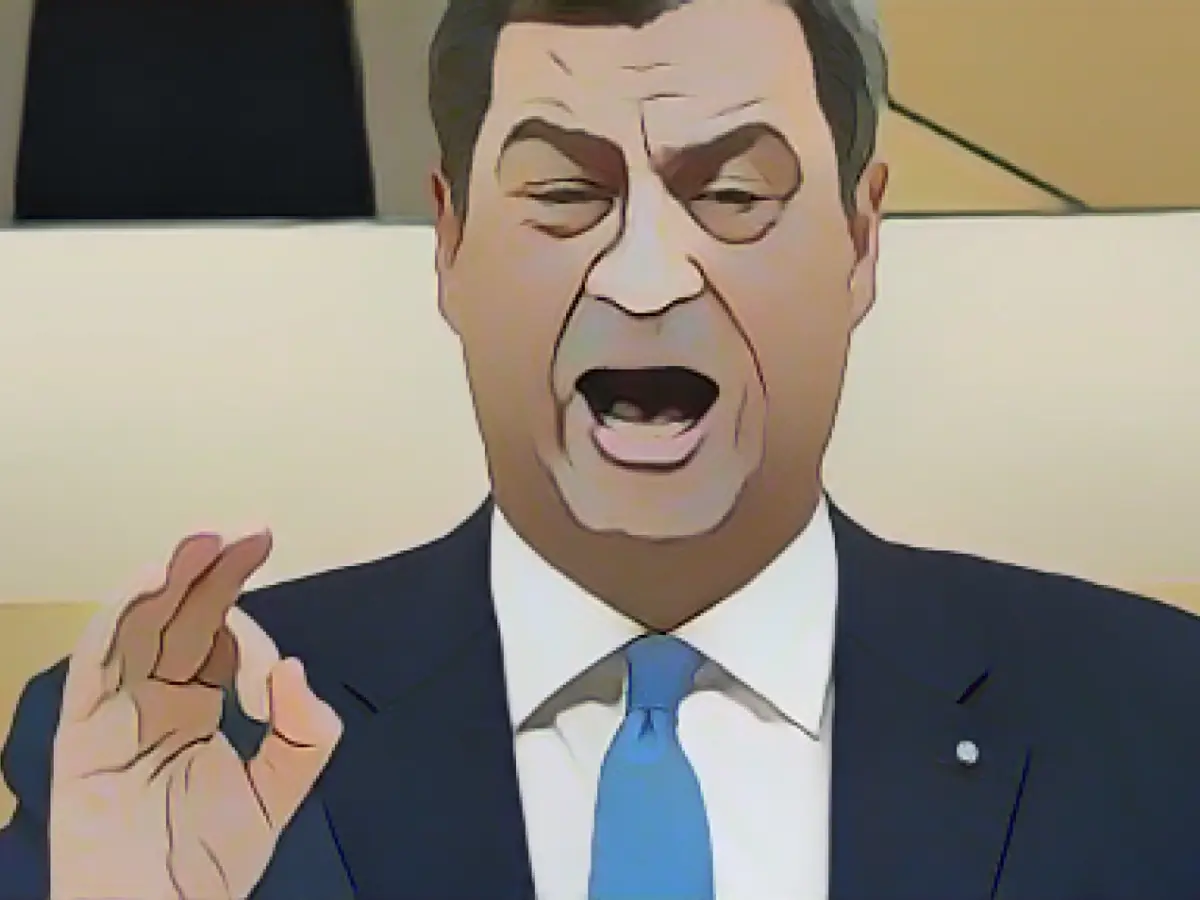In a scathing critique, Bavarian Minister President and CSU Chairman Markus Söder lambasted the coalition parties for their failure to reach an agreement on the federal budget. Söder accused the government of being powerless, stating that they should have presented a plan on how to proceed in this situation.
The CSU leader suggested potential savings, such as reversing the heating law and reducing the citizens' allowance. However, he found no compelling ideas from the coalition parties. Söder stated that, with the coalition parties losing trust among the populace and no longer trusting each other, a new election would be the best course of action for the country as a whole.
Additional Insights:
The ongoing budget dispute between Germany's Federal Government and the CSU encompasses various contentious issues, including the cost-effectiveness of the Deutschlandticket, economic policies, immigration and asylum policy, and energy policy.
- Deutschlandticket: The cost of the Deutschlandticket, a €59 monthly public transport ticket, is a significant point of contention. The CSU argues that the number of users is not sufficient to justify the state subsidy and proposes that the federal government solely finance the ticket from 2026. Conversely, those relying on the ticket fear that prices could surge to €100 or more if the state subsidy is withdrawn.
- Economic Policies: The review of the debt brake mechanism, which limits new debt to 0.35% of annual economic output, is a subject of contention. The CSU is open to reconsidering the rule if it hinders investments in areas like climate, defense, and infrastructure. Additionally, the proposal of tax cuts and economic stimulus, such as reducing taxes for the affluent and businesses, could create a significant budget deficit.
- Immigration and Asylum Policy: Friedrich Merz, the CDU leader, advocates for stricter immigration rules, including controls at all national borders and a revision of asylum procedures. He also proposes outsourcing asylum applications to third countries.
- Energy Policy: The CDU is exploring the possibility of relaxing climate priorities to review energy policy more comprehensively. This includes potentially lifting the ban on combustion engines by 2035 and reevaluating energy policy as a whole.
Original Source:
Markus Söder has voiced his disapproval of the failed negotiations regarding the federal budget. The coalition parties' inability to come to an agreement highlights their "powerlessness," according to Söder, who added that they should have presented a solution to the current situation. Söder suggested potential cost-saving measures, including reversing the heating law and lowering the citizens' allowance, but did not find convincing arguments from the coalition parties.
The budget dispute has reached Bavarian regional broadcaster BR, generating controversy and fueling strong opinions among its audience. The Federal Government and the CSU, once strong allies, have been unable to resolve their budget impasse and have received attention on an international stage, where it serves as a popular point of discussion at gatherings and parties.
The budget dispute could have far-reaching consequences for Germany's national budget, potentially affecting various government programs and services nationwide.
: Enrichment Data. : Base Article.








